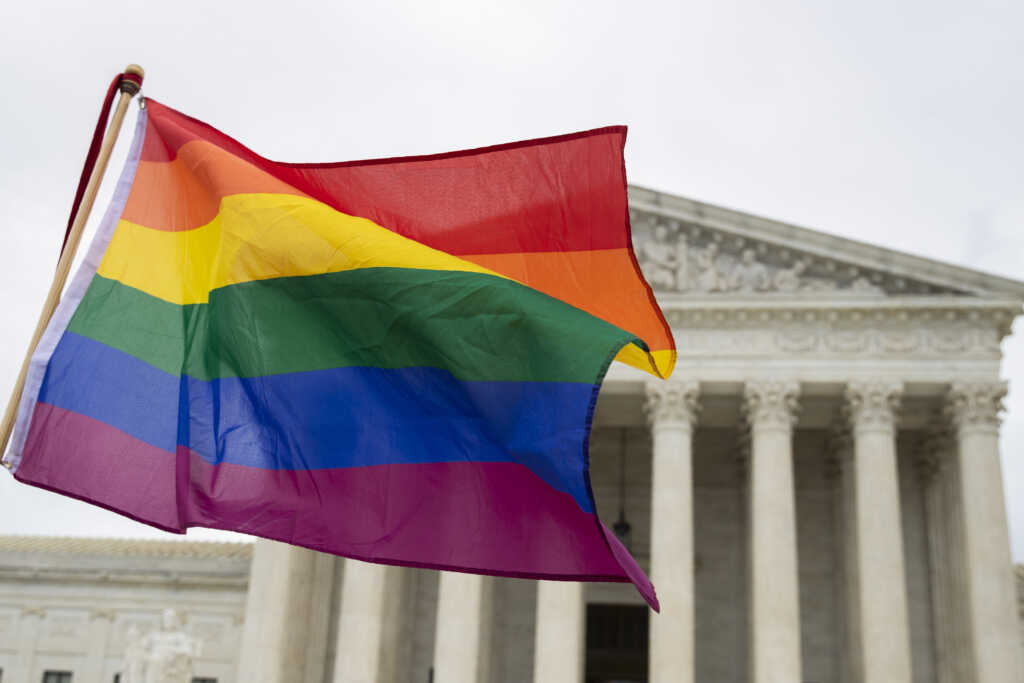The U.S. Supreme Court is set to hear a truly contentious case Monday that could pave the way for increased — or, at the least, solidified — religious freedom for American business owners.
Listen to the latest episode of CBN’s Quick Start podcast 👇
Lori Smith, a graphic designer and the owner of 303 Creative, LLC, is heading to the Supreme Court Monday for oral arguments in her case, 303 Creative LLC v. Elenis.
Smith and Kellie Fiedorek, her attorney with Alliance Defending Freedom, told CBN News about Smith’s six-year battle and why she’s continuing to fight to prevent the government from “forcing Americans to promote views they disagree with.”
The business owner said she creates unique artwork as part of her company and absolutely loves her career. But Smith has been locked in a battle with the state of Colorado over a law she believes requires her to “violate her core beliefs” by compelling her to create same-sex wedding websites.
“I get to work with people from all walks of life, and I want to design and create for weddings, but I can’t do that because Colorado is censoring and compelling my speech and forcing me to design custom speech that goes against my core beliefs,” Smith said.
The designer added, “The state of Colorado is compelling my speech, silencing my speech, and chilling my speech. I have clients from all different walks of life, including those who identify as LGBT.”
Smith said her Supreme Court fight, which will assess the legality of the regulations in question, protects everyone, not just Christians who believe in traditional marriage.
“The right to create and speak consistently protects not only me but the LGBT web designer who shouldn’t be forced to create custom artwork celebrating messages that oppose same-sex marriage,” she said.
Fiedorek affirmed her client serves people of all lifestyles “regardless of who they are,” but that custom projects supporting same-sex marriage violate Smith’s beliefs.
“Colorado is misusing and misapplying its public accommodation law to compel Lori’s speech, and the government can’t do that,” she said. “In many states, public accommodation laws are, in effect, coexisting in harmony with the First Amendment, but instead, in Colorado, they are deciding that they can come in and censor speech, compel them to say something that they don’t believe.”
Fiedorek added, “Free speech is for everyone, and we’re hopeful the Supreme Court will affirm that in its decision in this.”
Smith echoed this sentiment and said she’s hoping the Supreme Court will “step up to protect” free speech, affirming why a victory would be consequential for anyone who cares about free expression.
“Everyone should be free to create and design consistently with their convictions, whether those are similar to mine on the topic of marriage or whether they’re different,” she said. “Because a win for me, in this case, is truly a win for each and every American.”
Smith said the past six years have been a “rollercoaster,” as negative attention has come from her decision to challenge Colorado.
From harassment and threats to her personal address being posted to social media, Smith said it has been a turbulent journey.
“It’s been met with quite a bit of backlash. I’ve lost business. My clients have been harassed. I’ve received many death threats, threats of physical harm,” she said. “I’ve had items show up at my home. I have a security system on my home.”
But, in the end, she said she hasn’t retracted from her quest to solidify freedom for all Americans.
“I believe that the right to speak freely is worthy of protecting,” Smith said. “Everyone should have the right to work consistently with their beliefs without the government punishing them.”
Watch the full discussion.
***As the number of voices facing big-tech censorship continues to grow, please sign up for Faithwire’s daily newsletter and download the CBN News app, developed by our parent company, to stay up-to-date with the latest news from a distinctly Christian perspective.***



